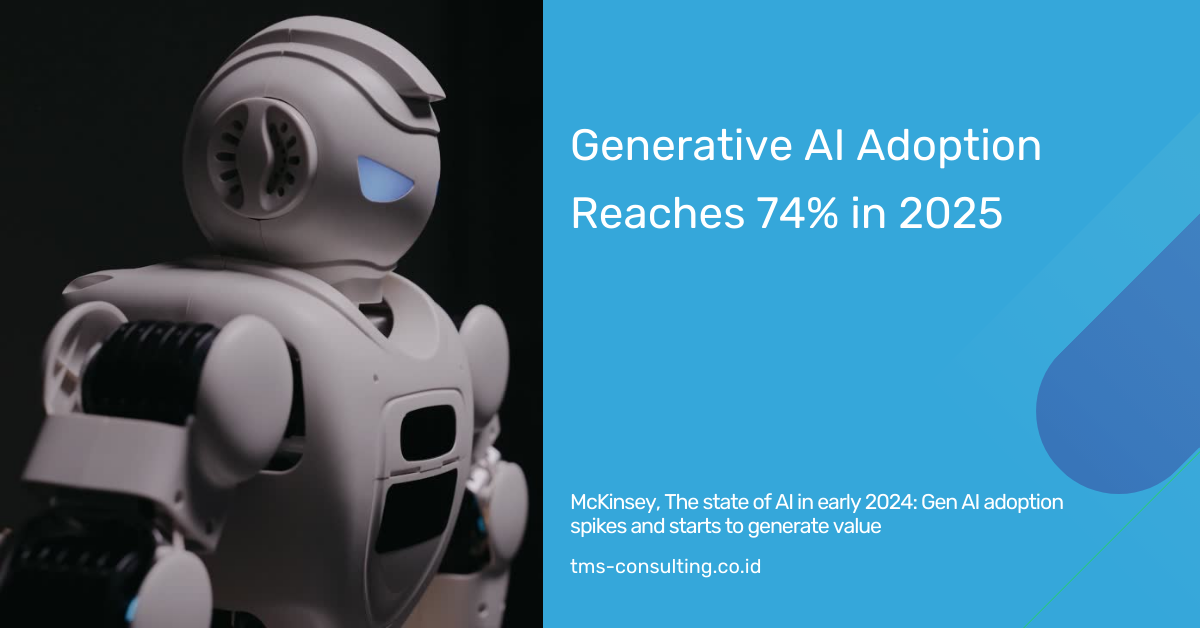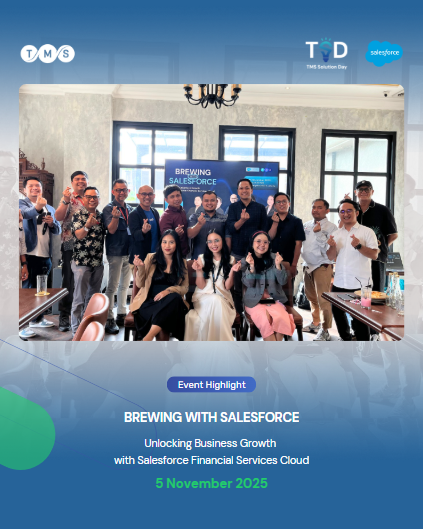Generative AI is no longer just a futuristic concept—it’s a mainstream business tool. According to McKinsey’s latest AI adoption report, 74% of businesses are currently experimenting with or deploying generative AI tools, a massive jump from 48% in 2023.
As organizations strive for efficiency, automation, and personalization, AI-driven tools are revolutionizing industries. However, successful AI adoption requires the right strategy. Is your business ready to leverage AI for maximum impact? TMS Consulting can help you integrate AI seamlessly into your operations, ensuring you stay ahead in this digital transformation.
The Rapid Growth of Generative AI in Business
The widespread adoption of generative AI is fueled by several key factors:
- Increased Accessibility
- AI-powered tools like ChatGPT, MidJourney, and GitHub Copilot have become more affordable and user-friendly.
- Businesses of all sizes can now implement AI without massive infrastructure investments.
- Productivity and Cost Efficiency
- Companies using AI-powered automation report a 40% increase in efficiency and up to 30% cost savings on repetitive tasks.
- AI is streamlining processes like content creation, customer support, and software development.
- Enhanced Customer Experiences
- 60% of businesses now use AI chatbots to improve customer interactions.
- AI-driven personalization has boosted e-commerce conversions by 20%.
- Competitive Advantage
- Companies leveraging AI for data analysis and decision-making gain faster insights.
- AI-powered predictive analytics help businesses optimize marketing, sales, and inventory management.
Industries Leading the Generative AI Adoption While AI is impacting all sectors, some industries are leading the charge:
✅ Marketing & Advertising: Automating content generation, personalization, and ad targeting.
✅ Healthcare: AI is being used for medical diagnostics, drug discovery, and patient support.
✅ Finance & Banking: AI-driven fraud detection, risk management, and automated financial advisory.
✅ Retail & E-Commerce: AI-powered product recommendations and virtual shopping assistants.
✅ Software Development: AI coding assistants improving productivity by up to 55%.
Challenges in AI Integration
Despite its rapid adoption, businesses face challenges when implementing AI:
- Data Privacy & Security: With AI processing massive amounts of data, concerns about data protection and compliance are growing.
- Ethical & Bias Issues: AI models must be trained to eliminate bias and ensure fair decision-making.
- Workforce Upskilling: 50% of employees feel unprepared for AI adoption, making training essential.
To address these challenges, companies are investing in AI governance frameworks, ensuring ethical and responsible AI use.
Conclusion
The rise of generative AI from 48% adoption in 2023 to 74% in 2025 shows how businesses are embracing innovation. With AI reshaping industries, organizations that leverage its potential will stay ahead in an increasingly digital world.
Not sure where to start with AI implementation? TMS Consulting specializes in AI strategy, integration, and optimization, helping businesses navigate the complexities of digital transformation. Get in touch today and future-proof your business with AI!
Reference:
McKinsey, The state of AI in early 2024: Gen AI adoption spikes and starts to generate value






